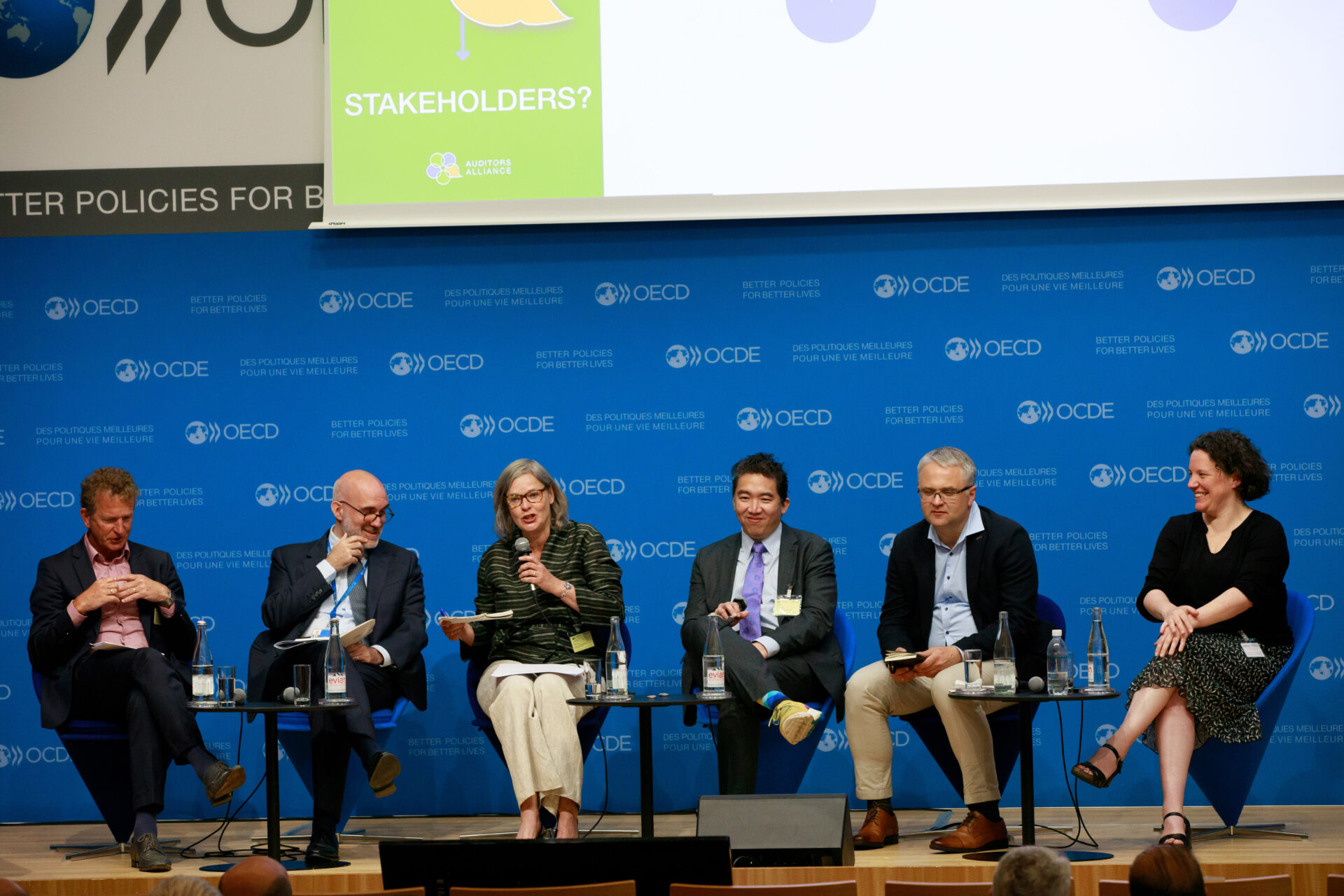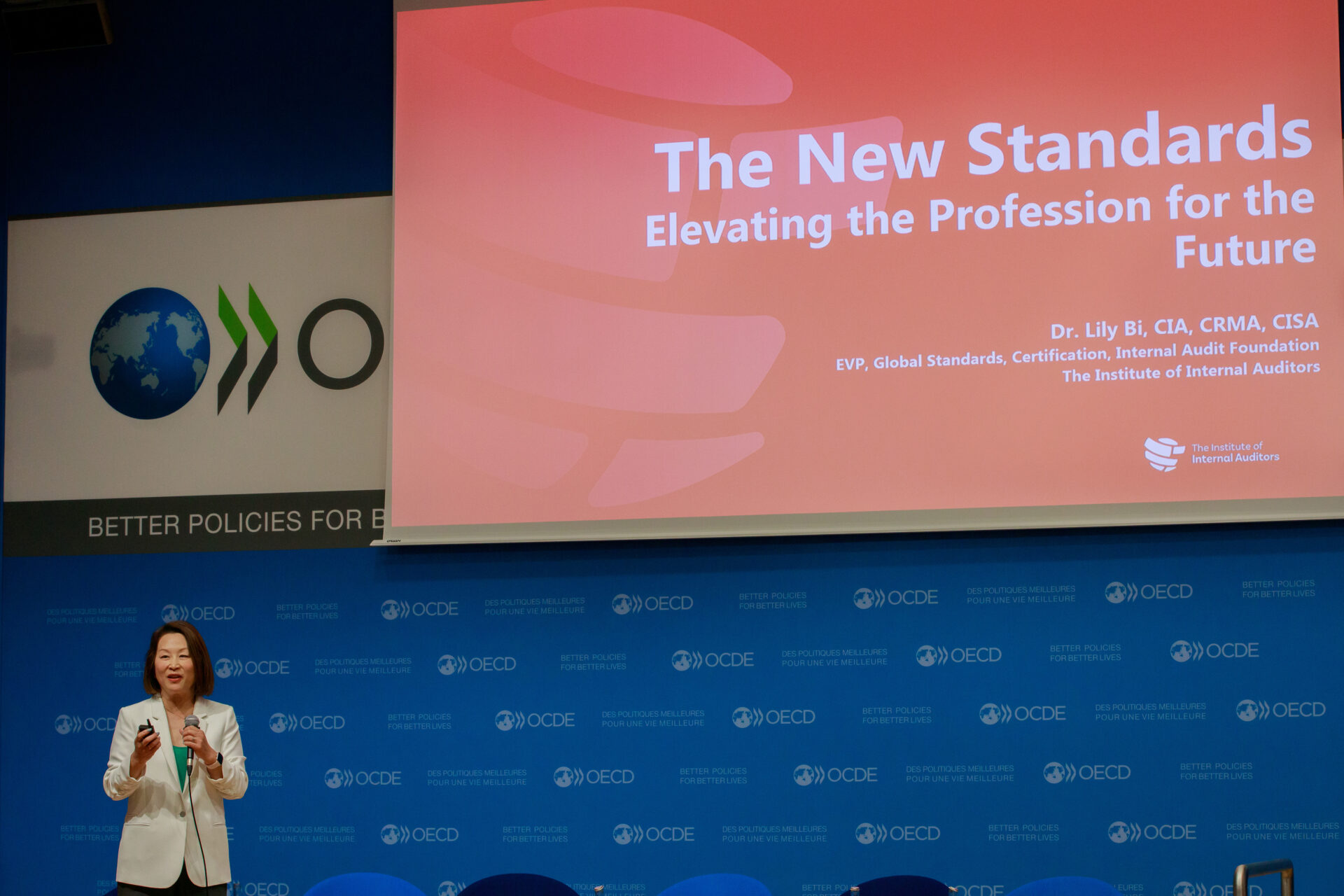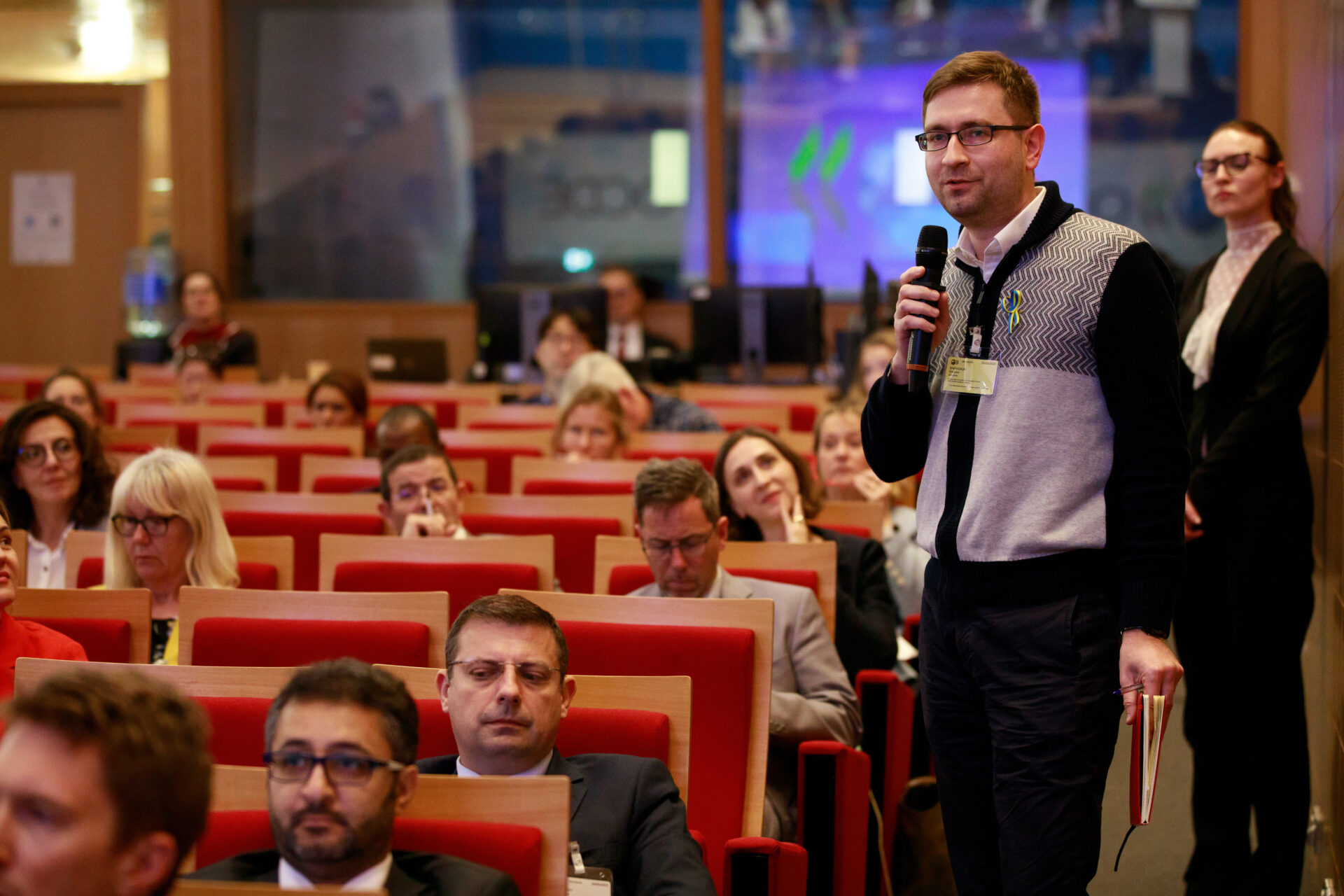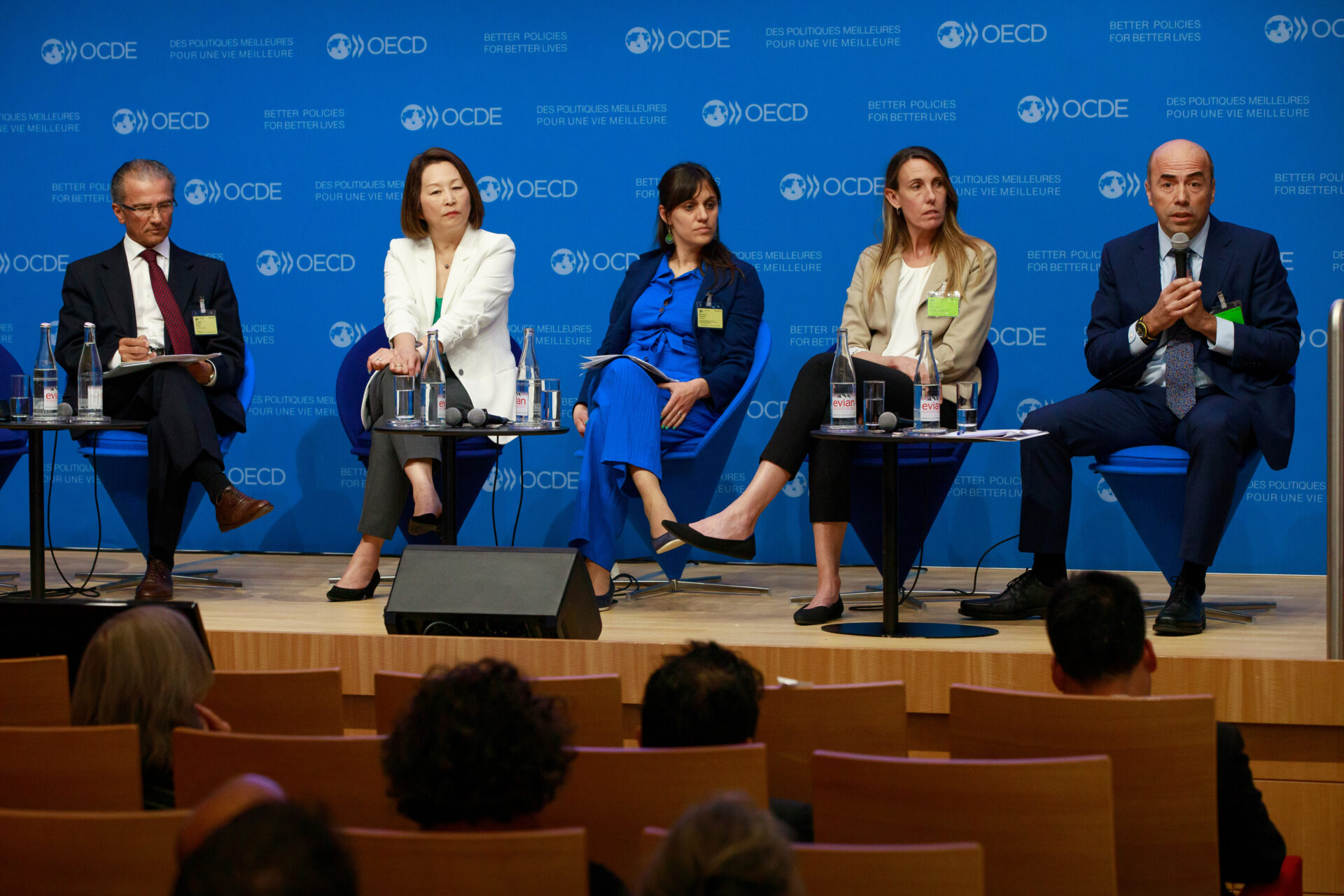
Events
HIGHLIGHTS: The OECD Auditors Alliance Meeting, 23rd May 2023
June 12, 2023
Tags: Auditors Alliance, Innovation, OECD, PSI, SAI, internal audit
Five years after its launch, the Auditors Alliance continues to bring together internal and external public sector auditors from around the world. The 2023 Auditors Alliance Meeting, hosted over 100 attendees and 20 speakers who discussed policy solutions and best practices to address key challenges in public sector auditing. The topics covered included promoting government innovation through auditing, enhancing cooperation among auditors, conducting efficient performance audits, and preventing and detecting fraudulent irregularities in public funds.
Session 1 Innovative Accountability
During the first session, panels and participants discussed the interaction between innovation and audit from various angles. The panels acknowledged that there are differences between the auditors’ perspective and the nature of innovation, such as high risk, complexity, and uncertainty. Sound internal control and internal auditing are crucial for establishing innovative processes and risk management.
Participants also discussed the development of the concept of accountability and the role of auditors. They emphasized the role of auditors not only as traditional auditors but also as advisors and foreseers and agreed that it is important to secure an audit impact through cooperation with various stakeholders. Here are some inspiring keywords from the panels:
- While holding the government accountable was traditionally the role of the parliaments, now many other stakeholders and policy target groups are reinforcing this responsibility, and effective internal control framework becomes crucial. AI technology – meet it halfway and monitor. Don’t “play” with technology if internal control system is weak.
- Balancing between responsibility and breaking the rules is a dilemma. From the innovators’ perspective, it is essential that they have a certain degree of discretion to create new ideas and systems. This is a challenge in public sector. It should be taken into consideration when discussing public sector accountability and should result in a clear set up of objectives and processes for innovators. The advisory role of internal audit could be essential.
- It is impossible to avoid audits and sound audits are essential for innovation. But auditors should be capable to provide foresight to the governments on how to prepare for upcoming challenges such as AI innovation or crises such as pandemics.
- The nature of innovation, risk, uncertainty and complexity are sometimes not acceptable for auditors and regulators. They may not use the same languages and it results in misunderstanding. Building a community and network of regulators, auditors and innovators is essential.
Session 2 Cooperation between internal and external auditors
In the second session the panels discussed the importance of collaboration between internal and external auditors and the challenges they face in cooperating with each other. The panels emphasized that considering the increasing demand for public auditing, it is impossible to secure the accountability of the public sector with only external auditors and the role of internal auditors is crucial.
Also, the speakers discussed the difference in perspectives between internal and external auditors and agreed that mutual trust and understanding are important to resolve such misunderstandings. The panellists also discussed information on recent joint projects for collaboration between internal and external auditors of the European Confederation of Institutes of Internal Auditing (ECIIA) and EUROSAI, as well as Korea’s internal and external audit collaboration system, and cooperation with the European Commission’s internal audit body and European Court of Auditors.
Key takeaways:
- External auditors use the work of internal auditors, but internal auditors do not receive feedback on how their results are utilized.
- For cooperation, standards, guidelines, and best practices are important.
- The starting point of cooperation between internal and external auditors is recognizing each other’s roles and limitations.
- Consistent and harmonised frameworks are important for the independence of internal auditors.
- Internal auditors are the key supporters for improving internal controls and this cannot be overestimated.
Session 3 Performance audit
During the third session, participants discussed the direction of performance auditing and how internal auditors can approach it. They have emphasised that the criteria used for performance auditing will evolve into international standards and environmental issues in the future.
Key takeaways:
- Multiple approaches are possible to address a single issue (such as fraud related to government funds) through various audits. Auditors can evaluate individual cases through financial audits and propose systemic improvement measures through performance audits.
- The goals and expectations of performance audits are increasing. The criteria are becoming higher based on international standards (e.g., environmental standards) and sustainability.
- Performance audit is increasingly applied by the internal audit functions through the internal control assurance role. This provides stronger added value and impact. Nevertheless, the efforts should be targeted to the development of internal audit and internal control systems.
- High expectations rising for strong central harmonisation functions around the globe.
- When conducting performance audits at the local level, comparing with other organizations through benchmarking and analysing specific programs can be an effective approach. Nevertheless, comprehensive training mechanism and harmonised guidance should be ensured for this.
- Better audit quality and sound internal control frameworks are in the limelight of many countries.
Session 4 New internal audit standards
Session 4 introduced the new internal audit standards being revised by The Institute of Internal Auditors (IIA). The IIA’s internal audit framework has undergone several significant changes since its launch in 1947 and is now facing another major change. The revised International Professional Practices Framework (IPPF) will have a simpler and clearer structure and will include more practical and applicable guidelines. New proposals include a specifically addressed supporting content regarding the public sector. It would provide more clarity for application of new standards. The public sector governance and public internal audit environment should be prepared to embrace the new requirements.
Session 5 Fraud prevention
During the final session, there was a discussion on effective measures that internal and external auditors can take to address the increasing fraud and corruption related to public finance. Participants recognized the crucial role that both internal and external auditors play in preventing fraud and shared various models and approaches related to fraud auditing.
Furthermore, panels emphasized the importance of collaboration with other oversight bodies for effective fraud prevention systems, the significance of internal control systems, cooperation with auditees, the role of data analytics, and the challenges of fraud risk management.
Key takeaways:
- To respond to the increasing risk of fraud, cooperation with investigative agencies and financial authorities is necessary; data technology should be actively utilized.
- The roles and responsibilities of auditors and other investigative bodies may vary in relation to fraud. For example, auditors can diagnose fraud risks, while separate investigators can handle individual cases. However, in cases where functions are dispersed, it is important to share information between roles.
- Inspectors have limitations in that they can only intervene after signs of fraud have been detected. Internal controls and prevention efforts are important for fraud prevention.
- Using various data analysis tools for fraud prevention is good, but data tools don’t always have to be sophisticated. Sometimes simple data matching can be effective, and it is important to enable users to actively use such tools.
- The participation of internal auditors is crucial when using data analysis tools. As data experts require a lot of time to understand business, key questions for algorithm development should come from internal auditors or internal control managers.
- Building more effective fraud prevention systems requires stronger internal control systems, cooperation between auditors and auditees, collaboration with other oversight bodies and impactful application of data analytics.
Finally, we discussed the topics they would like to see the Auditors Alliance focus on in the future. A number of topics were raised, including climate change audit, IT audit, innovation, and artificial intelligence. If you have any comments and suggestions for the Auditors Alliance, please let us know in the Discussion box below or via email.
We hope to see more of our colleagues at next year’s Auditors Alliance meeting.




Let’s Discuss
Events
- You must be logged in to reply to this topic.

